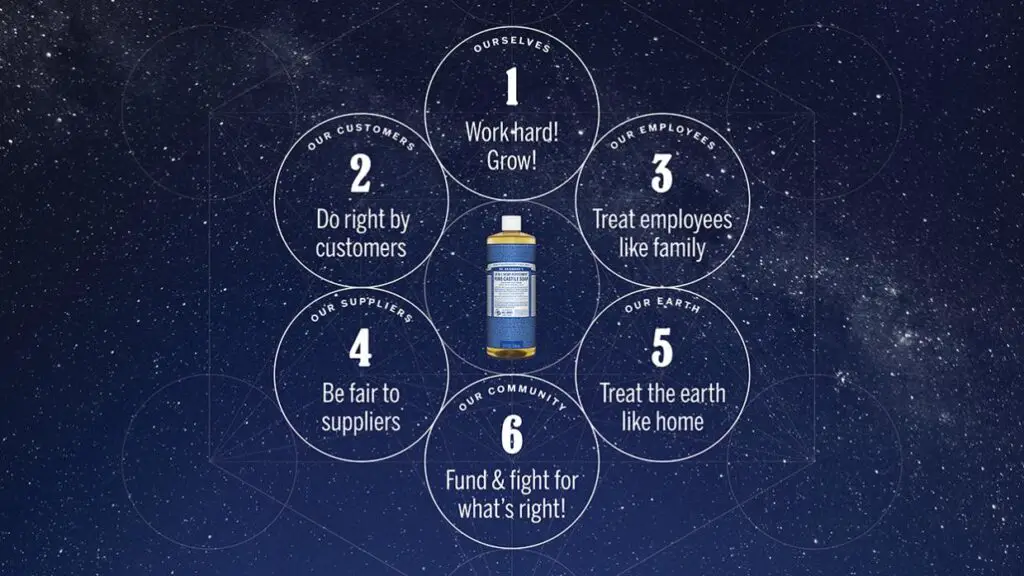As businesses become more globalized, the role of ethical marketing teams has taken on a new significance, one that is slowly being recognized as essential to business success. As a result, there has been increasing pressure from regulators, customers, and other stakeholders for companies to take responsibility for their ethical practices, and this is where marketing ethics comes in.
This comprehensive guide seeks to provide readers with an understanding of what marketing ethics is, how it works, why it matters, and how ethical practices can be applied in the contemporary business environment. As such, this article will delve into the key topics of corporate social responsibility, advertising and consumer protection, market research principles, privacy rights, and more.
It is our hope that readers will gain useful insight into this important topic, one that all businesses need to keep in mind when forming responsible marketing strategies.
What is Marketing Ethics?
In today’s business world, what does it mean to be ethical in marketing? How do organizations ensure their strategies are up to par with the industry’s standards and considerate of all stakeholders? A marketing manager plays a critical role in deciding the ethicality of a company’s approach. To guarantee that their marketing campaigns always adhere to these principles, many businesses employ ethical officers who monitor and evaluate any potential implications.
Take Dr. Bronner for example – one of the most successful benefit corporations out there. Founded by Emanuel Bronner himself, this company is committed to using sustainable packaging, paying fair wages, and avoiding animal testing or animal by-products altogether. This demonstrates how profitable ethical marketing can be when done right!
At its core, ethical marketing is an essential part of today’s business environment – from monitoring strategies through ethical way of employing officers to examples like Dr. Bronner showing us just how beneficial it can be for everyone involved.
The Principles of Ethical Marketing
Ethical marketing refers to a type of marketing that puts customers, socially responsible/environmental causes, and the public good first. But what does this mean? It means being honest, fair, and responsible in all advertising – as well as optimizing presence in the target market or niche.
Ethical marketing works to protect consumers by providing accurate information about risk and protecting physical and mental health. To do this it involves social responsibility which includes following governmental regulations core ethics principles and industry standards.
When making decisions ethically marketers must balance between business (return) and moral perspectives (right/morally sound). This means upholding ethical standards while still making a profit from product/service advertising.
Examples of ethically appealing practices include using recycled materials, transparent communication, accurate information, avoiding false claims or exaggerated product or service claims. Companies communicate values such as openness, transparency, and environmental and social responsibility through ethical marketing too!
Honesty
When it comes to marketing, should we be honest or deceptive? Ethical marketers should focus on making truthful claims about their products and services, avoiding targeting children with ads, and not unfairly criticizing competitors. Examples of deceitful promotion practices include intentionally misrepresenting how a product is made or works, failing to disclose information regarding pyramid sales schemes, bait-and-switch tactics, false or greatly exaggerated product or service promises – all of which can lead to a lack of trust and customer loyalty. Making fraudulent statements for more sales also has the consequence of tarnishing a company’s reputation and can result in legal action.
Transparency
Transparency is an essential building block for trust between businesses and their customers. Business leaders and marketers must be honest about a company’s products and services, abiding by state laws when engaging in marketing activities, as well as revealing all details of a product that should be known to customers.
Companies must also make clear the sources of their goods, pricing information, quality assurance, features offered, and customer satisfaction ratings. Transparency is like a bridge connecting companies with consumers – it helps build strong relationships based on truthfulness.

Respect for the Consumer
In ethical marketing, respecting the consumer is paramount. Marketers must craft messages that appeal to their target audience’s tastes and interests. To do this, they must carefully screen and test promotional materials, select communication media, programming, and editorial content that resonates with their target audience.
Moreover, marketers should create a process that builds trust with investors, counterparts, competitors and stakeholders – making potential customers feel safe when dealing with the company. This not only helps build respect but also encourages customers to have faith in the brand.
Respect for the Environment
The concept of environmental sustainability is becoming ever more crucial for ethical marketing. Companies must be aware of their ecological footprint and take steps to reduce it – from cutting emissions, conserving resources, to recycling materials. They should also consider the environmental impacts of their supply chains and make sure that their processes are as eco-friendly as possible.
Climate change is one of the most pressing issues today and its effects on coffee production are dire: research suggests that up to half of all coffee farming land could be lost by 2050 if climate change continues unchecked. To prevent this, businesses need to adopt socially responsible and sustainable practices such as using sustainable materials or biodegradable packaging. By doing so, they can help protect our planet while ensuring coffee production remains viable in the future – a goal we must strive for!
Social Responsibility
Corporate Social Responsibility (CSR): what is it? What obligations does it involve? CSR requires businesses to commit to ethical principles and practices, as well as their efforts to promote social, environmental, and economic sustainability. To demonstrate commitment to ethical practices, companies can engage in fair trade, use sustainable packaging, and responsible advertising – all while ensuring compliance with applicable laws and regulations.
But why should businesses bother? Implementing ethical marketing practices builds trust with consumers and creates a positive public image. Plus, it can improve overall profitability! So if you’re looking for ways to show your commitment to social responsibility – look no further than ethical marketing practices.
Examples of Ethical Marketing Practices
Ethical marketing is a crucial part of any serious business model, setting the standards and principles that guide a company’s marketing decisions. It requires companies to think beyond profits and consider how their actions affect people and the planet.
The public-facing side of ethical marketing includes customer service, product sustainability, and commitment to ethical practices in production and labor – all communicated through labels, website content, advertisements, etc.
For example: Fair trade products guarantee farmers are treated fairly for their work; sustainable packaging uses recycled materials to reduce waste; responsible advertising ensures ads don’t make false claims or deceive customers. All these practices help businesses build trust with consumers while protecting the environment!

Fair Trade Products
Fair trade is an ethical marketing practice that puts people first, ensuring farmers and producers receive fair wages for their work and materials. It helps reduce poverty, provide access to education, and empower communities. With more companies looking to demonstrate their commitment to ethics, fair trade products are becoming increasingly popular.
Take The Body Shop as an example: they have a strong dedication to fairness, transparency, and social responsibility – avoiding animal testing and using organic products. They also stand behind their promise of treating workers fairly while providing quality products with healthy body images in mind.
Conscious Coffees is another great example of how a company can embody ethical principles in everything it does. Their mission? To improve conditions for coffee farmers around the world by creating an educational program for disadvantaged youth in Guatemala – just one of many initiatives they’ve implemented!
At the end of the day, ethical practices should be at the forefront when it comes to business decisions – no matter what industry you’re in!
Sustainable Packaging
Sustainable packaging is a crucial part of ethical marketing. But what is it? It’s the use of sustainable materials and processes to create packaging that lasts, while reducing waste and minimizing environmental impact.
Take TOMS for example – they’ve used their philanthropic mission in their branding, emphasizing their commitment to helping people in need and using sustainable materials. They even went as far as giving 400,000 pairs of glasses to visually impaired people! Plus birthing kits and training for birth attendants.
Farmer Direct also uses ethical marketing practices to promote their mission – educating people about the importance of sustainable food sources through their website, blog, newsletter… And offering programs that help understand the importance of sustainable agriculture and food production.
Responsible Advertising
Responsible advertising is an important part of ethical marketing. It’s all about making sure that ads and campaigns are truthful, not misleading or offensive. Take Domino’s Pizza for instance. They made a bold move by showing customers pictures of real pizzas in their advertisements – gaining attention and loyalty from customers. Everlane also demonstrated commitment to ethical values with their marketing efforts. They revealed the cost breakdown for each item so people could understand the true cost of their purchase – no hidden fees! Jeff, a small business owner, took an ethical approach to his own marketing campaign too. He used it to help the homeless population in his local community by providing tangible benefits and programs. By taking a stand for ethics, businesses can gain potential new customers, improve public perception and increase profits – all good things!

Challenges to Ethical Marketing
Marketing ethics is a complex issue, with many challenges that can hinder a company’s ability to engage in ethical marketing practices. Generally, ethical marketing involves a commitment to honesty, transparency, respect for the consumer, respect for the environment, and social responsibility. However, there are a number of obstacles that can make it difficult for companies to adhere to these ethical marketing principles. These challenges include unclear regulations, lack of resources, and pressure from competitors.
Unethical behaviour in marketing can take many forms, with a few examples including making false claims about products, intruding on consumers’ privacy, stereotyping, targeting vulnerable audiences, and damaging competitors’ images. It can also include providing incorrect information on product pricing, claiming a product can do more than it actually can, and making manipulative and exaggerated claims.
Examples of unethical marketing strategies include sharing customer information without consent, making untrue claims about the product, pressuring customers to buy items or provide credit card numbers, and bypassing adult supervision or control. Unethical marketing tactics can also include persistent and high-pressure selling, unsolicited advertisements, scare tactics, slandering competitors with unverified claims, and junk mail.
Research can also lead to ethical issues when marketing products or services. For example, it may involve invasions of consumer privacy, exaggerating data to make a selling point, writing questions to obtain a specific result, or inaccurate information leading to decisions. Companies may also engage in unethical marketing practices directed at minority customers, which can lead to bad public images and lost sales.
Unclear Regulations
Unclear regulations can be a murky maze for ethical and marketing professionals. The line between right and wrong is often blurred, and what may seem appropriate to one group could offend another. Corrupt practices don’t always break the law, but they can still have dire consequences.
That’s why companies must stay aware of the regulations that govern their campaigns – like persistent and high-pressure selling in direct marketing, annoying telemarketing calls, deceptive pricing tactics or using the internet to target children.
When it comes to deciding what’s ethical, public pressure plays an important role too. Studies linking tobacco and alcohol consumption with youth have sparked increased scrutiny from society – leading to stricter rules on how these products are marketed.
If you want to learn more read our article about emotional marketing.
Lack of Resources
Lack of resources can be a major challenge to ethical marketing. Companies may take shortcuts or cut corners when they don’t have the necessary resources, leading to deceptive tactics, exploiting vulnerable groups and false claims about products. But how else does lack of resources affect ethical marketing? It can lead to marketers making assumptions about customers which create stereotypes and frustration among audiences who don’t fit these categories. So what unethical practices might companies engage in due to lack of resources? Intrusive and unethical advertising itself, forceful selling and deceptive pricing are all possibilities as companies try to gain an edge over their competitors.
Pressure from Competitors
Pressure from competitors – is it a challenge to ethical marketing? Companies may be tempted to engage in unethical practices, such as exaggerating and manipulating claims, tricking customers into buying products or using other deceptive marketing tactics. Selling hazardous or defective products without notifying customers of the dangers, failing to provide promised services or ignoring warranty obligations are some examples of this.
Engaging in unethical or deceptive marketing practices can have serious consequences for a company: bad public image, lost sales and even legal repercussions. To prevent these challenges companies must remain committed to ethical principles and practices. Clear regulations, sufficient resources and commitment to ethical behavior will help ensure that companies are engaging in ethical marketing.

Benefits of Ethical Marketing
The benefits of ethical marketing are undeniable – it can have a real, positive impact on a company’s bottom line. But what is ethical marketing? It encompasses strategies and practices that demonstrate a company’s commitment to values such as honesty, transparency, respect for the consumer and environment. By adhering to these principles, companies can attract and maintain customers while also boosting their credibility and creating a more positive public image.
But how does ethical marketing help build trust with customers? Consumers want assurance that the products they buy are produced ethically – so by showing them your commitment to values like respect for the environment or social responsibility you create an atmosphere of trustworthiness. This leads to increased customer loyalty and repeat business!
The effects of ethical marketing don’t stop there though; it reflects positively on every area of the business from customer relations to public relations. Engaging in ethical practices helps build strong relationships with consumers through shared values, promoting your brand as responsible and trustworthy which leads to improved reputation and higher customer loyalty.
So why should companies engage in ethical marketing? The answer is simple: increased sales, greater customer satisfaction, competitive advantage the list goes on! Ethical decisions not only benefit businesses but also improve our economic system leading us towards a more sustainable future.
Improved Public Perception
Ethical marketing can be a powerful tool, helping companies demonstrate their commitment to values like honesty and transparency. It can lead to increased trust in the company and its products, as well as a more positive public image. Consumers are becoming increasingly aware of the importance of ethical practices – do they look for socially responsible businesses? Can championing good causes help attract customers and build a strong reputation?
Yes! By engaging in ethical marketing efforts, companies can create deeper connections with their customers and stand out from competitors. Genuine brands that promote ethical values through honest advertising will naturally draw consumers in – creating long-term relationships between them and their customers.
Increased Customer Loyalty
Ethical marketing can lead to customer loyalty, but why? Customers want to know that their purchases are contributing to something bigger than themselves. By engaging in ethical marketing practices, companies can show they care about customers and demonstrate commitment to ethical values. This leads to increased customer loyalty and improved satisfaction.
Loyal customers are more likely to keep buying from the company and recommend it – creating a deeper connection between them and the company. Ethical marketing brings benefits like increased loyalty, trust, sales, and greater customer satisfaction – all of which make for happy customers!
Higher Profits
Ethical marketing can be a lucrative business and marketing strategy too, with the potential to increase customer loyalty and create a positive public image. But how? Studies have shown that companies who practice ethical marketing are more likely to attract customers and financial partners – giving them the moral ground they need to entice people. This can lead to increased sales, recurring income, and ultimately higher profits.
Take TOMS for instance: this company has long been dedicated to ethical practices, reinforcing their philanthropy through website content and marketing materials. As a result of building trust in their brand, TOMS has seen an uptick in sales as customers feel confident in the product quality. Similarly, ethical companies, that produce high-quality products and use honest advertising can also benefit from loyal customers and generate more sales.
Ethical marketing doesn’t just bring monetary rewards; it also leads to improved public perception of your company’s reputation! By engaging in ethical practices you demonstrate your commitment to values which builds trust with consumers – creating a strong competitive advantage that drives sales even further! Plus it creates an economic system that is sustainable over time – benefiting not only businesses but society as well by promoting ethical values across industries.
In conclusion: Ethical marketing brings many benefits including increased customer loyalty, higher profits, improved public perception of your brand’s reputation – plus it promotes sustainability within our economy! It’s clear why so many companies are investing in these practices – both for themselves and for society at large!

Summary
The principles of ethical marketing and the implementation of these practices can have immense benefits for companies, providing them with improved public recognition, increased loyalty from customers, as well as potential gains in profits. At the same time, however, there remain numerous challenges to ethical marketing such as lack of clear regulations and lack of resources, which can discourage companies from pursuing ethical practices or lead to exploitative tactics. Moreover, pressure from competitors can also force firms to follow unethical paths, leading to serious consequences.
It is thus paramount that businesses take on their social responsibility to promote sustainability and engage in fair trade through ethical practices, to build trust among consumers and create value for stakeholders. By maintaining honest communication and transparency while respecting the environment, consumers, and workers, companies can fully realize the vast rewards brought by ethical marketing.
Make sure to check out our other articles to learn more about marketing psychology.
Frequently Asked Questions
What do you mean by ethics in marketing?
Ethics in marketing refers to the principles that guide organizational decision-making with respect to customer communication, pricing, product safety and more. By taking a ethical approach to new marketing strategies, companies seek to build relationships of trust with their target audiences while reinforcing positive values.
Ethics in marketing refers to promoting fair and honest practices in marketing communications, with the aim of creating trust between organizations and their customers. This includes respecting customer rights, having empathy towards customers’ needs and expectations, and ensuring that promotional activities are accurate and transparent.
Why is ethics important in marketing?
Ethical marketing is important as it helps to build trust with consumers, provide them with accurate information about products and services, ensure that the well-being of customers is protected, and help brands differentiate from their competition.
Additionally, ethical marketing helps ensure that advertising remains fair and transparent.
Is an example of ethical marketing?
Yes, “Buy a Pair, Give a Pair” is definitely an example of ethical marketing. The program offers consumers what they are looking for and makes them the agents of change by donating a pair of glasses to those in need. Through this initiative, 8 million glasses have been given to people across the globe.
What is marketing ethics quizlet?
Marketing and business ethics is an important field that relates to moral principles and values when conducting business practices within the marketing area. It emphasises the need for fairness, honesty and lawfulness, amongst other key attributes, in order to maintain a high-quality standard of conduct in marketing.
It is important to stay up-to-date on all the relevant ethical standards to ensure compliance with legal requirements, protect consumers and promote trust in one’s business.
What are examples of marketing ethics?
Examples of marketing ethics include being transparent about pricing and product information, obtaining customer consent when sharing personal data, and avoiding making false claims. Respect for customers and their privacy is paramount in order to ensure that companies engage in ethical marketing practices.
